Search
Remove Ads
Advertisement
Summary 
Loading AI-generated summary based on World History Encyclopedia articles ...
Search Results
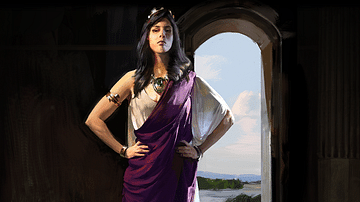
Definition
Dido - Legendary Queen of Tyre
Queen Dido (aka Elissa, from Elisha, or Alashiya, her Phoenician name) was a legendary Queen of Tyre in Phoenicia who was forced to flee the city with a loyal band of followers. Sailing west across the Mediterranean she founded the city of...

Image
Dido of Carthage (Artist's Impression)
The legendary queen Dido of Carthage depicted in the game Old World.

Definition
Aeneas
In Greco-Roman mythology, Aeneas is a Trojan prince and the legendary founder of the Romans. He is the son of Anchises, a member of the Trojan royal family, and the goddess Aphrodite/Venus. Aeneas was one of the few Trojan heroes who escaped...
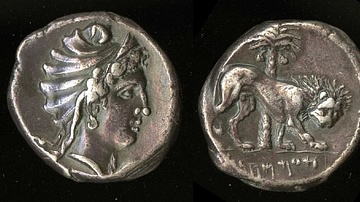
Image
Dido, Carthaginian Tetradrachm
A silver tetradrachm from Carthage. The female head has been identified by some historians as Dido (Elissa), the legendary founder of the city. Other historians identify the figure as the goddess Tanit (aka Tinnit). She wears a Phrygian cap...
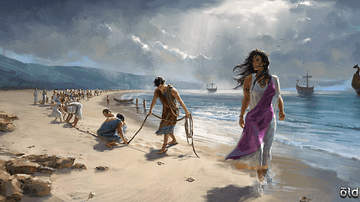
Image
Queen Dido Claiming Carthage
Artist's impression of Queen Dido (also known as Elissa) landing on the shores of North Africa and claiming the land where she founded Carthage. According to legend, when Queen Dido landed in North Africa, the local rulers offered her as...

Image
The Meeting of Dido and Aeneas
The Meeting of Dido and Aeneas by Nathaniel Dance-Holland (1735–1811). Oil on canvas. On display at Tate Britain, London, Room 6.

Definition
Carthage
Carthage was a Phoenician city-state on the coast of North Africa (the site of modern-day Tunis) which, prior the conflict with Rome known as the Punic Wars (264-146 BCE), was the largest, most affluent, and powerful political entity in the...
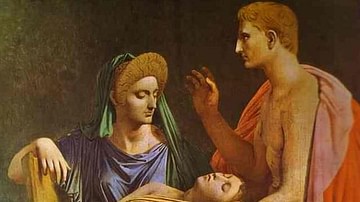
Definition
The Aeneid
The Aeneid, written by the Roman poet Virgil (70-19 BCE), is a twelve-book-long epic poem that describes the early mythology of the founding of Rome. The eponymous hero Aeneas, a Trojan prince and son of Venus, faces trials and tribulations...
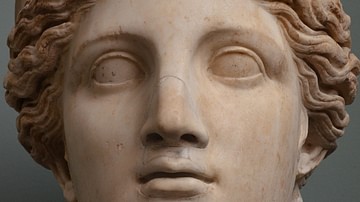
Definition
Juno
Juno was the Roman goddess who protected the nation as a whole but also kept special watch over all aspects of women's lives. She is often thought of as the Roman version of the Greek goddess of love and marriage, Hera. Juno was the wife...
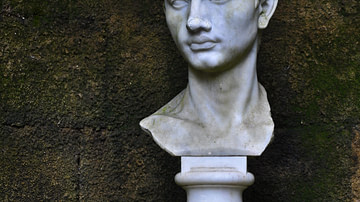
Definition
Virgil
Publius Vergilius Maro (70-19 BCE), better known to most modern readers as Virgil, was one of the greatest poets of the early Roman Empire. His best-known work, the Aeneid, told of a Trojan prince, Aeneas, who escaped the burning of Troy...